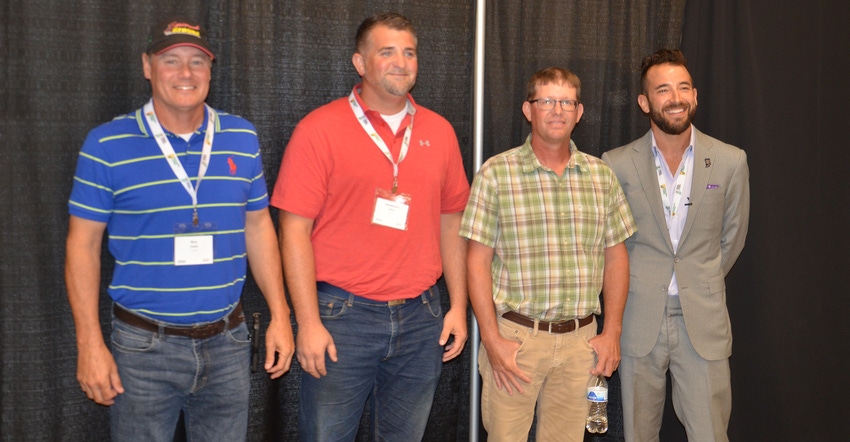
The Indiana Legislature considered a bill to establish carbon markets in 2021 but didn’t pass legislation. The federal government is debating proposed legislation that could lead to a role for USDA. Where do farmers think the government fits in this potential new market?
Jorden Seeger, deputy director of the Indiana State Department of Agriculture, chaired a panel discussion at an inaugural event for the Indiana Agriculture-Climate Alliance group known as IN-Climate. Panelists included Rick Clark, Warren County, Ind., a 100% organic farmer and zero-tiller; Chris Lehe, Brookston, Ind., whose family sells carbon credits through Indigo Ag on a rented farm where no-till is required; and Matt Willard, an agronomist, farmer and seedsman from Rossville, Ill., who doesn’t participate in carbon markets.
Related: What industry says about carbon markets
Seeger: Is there a role for government in carbon marketing?
Clark: Yes. They have the most power. The government should play a direct role in deciding and directing where this whole carbon marketing thing is heading. Right now, I can’t play because I’m already doing everything companies in the market want done. Maybe there should be a one-time payment, and the more you’ve done, the more you get. Indigo Ag relies on a third party to verify carbon sequestration, but many programs don’t. Maybe the government could be the third-party verifier.
Lehe: I’m hesitant because whenever the government gets involved, things never seem to get better. But I see a role for government in setting standards and guaranteeing market transparency in carbon markets.
Seeger: What role should states play in these markets?
Lehe: I see it as more of a role for the federal government. The players so far are more nationally based, so it should fall under the federal government. If the state set up markets, there might not be as much demand for what we produce, just at the state level.
Seeger: What should a farmer ask about contracts?
Clark: I would run any contract by my lawyer. I would want to make sure everything is on the up and up.
Lehe: The first thing to ask is how long the contract is. Next, you need to know if they are using a third-party verifier and actually measuring what carbon you produce. You also want to know how much of each carbon credit produced you’re getting, and how much goes to the company handling the transaction.
Seeger: Where does water quality fit? Should farmers be paid for protecting water quality?
Clark: The focus at USDA and EPA seems to be shifting from water quality to carbon. No one is monetizing improvements made for the benefit of water quality. These same practices help keep nutrients out of water. You need to ask yourself why you’re interested in implementing these practices. Is it just because you can make $10 per acre in the carbon market? Or is it because you want to protect water quality and keep nutrients out of waterways? Part of my motivation for farming as I do is cutting costs and making more profit, but I’m also interested in keeping nutrients out of streams.
Willard: We farm in a troubled watershed. We need to be proactive and do the right thing. Right now, we can do that voluntarily. If enough people don’t adopt these practices, it may be mandatory, especially in a troubled watershed.
Read more of this dicussion in this related story.
About the Author(s)
You May Also Like




